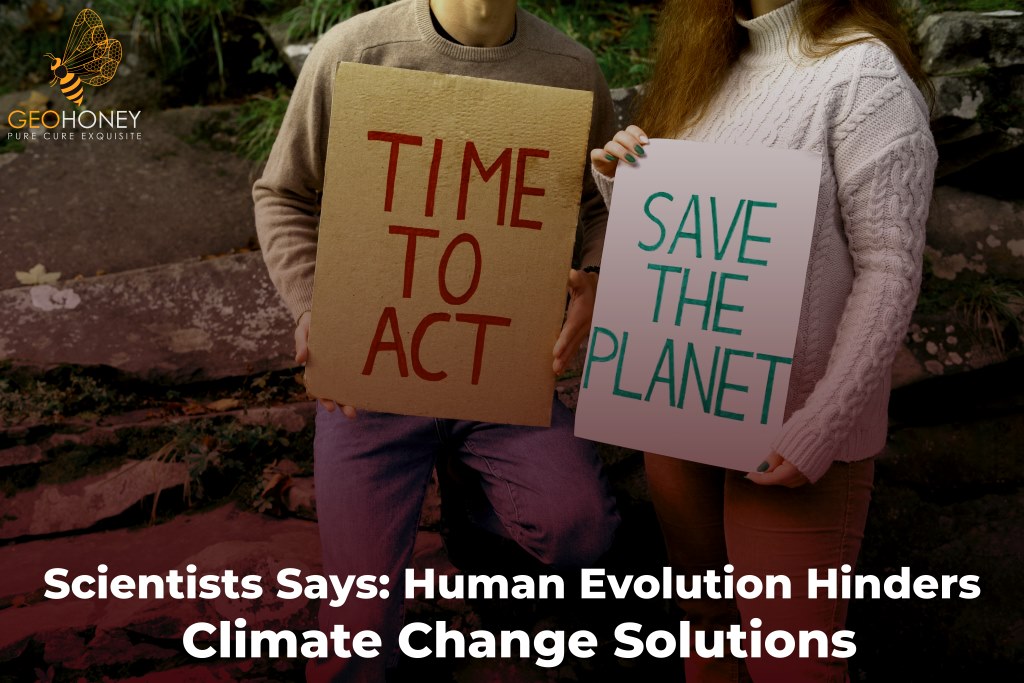- Tokyo: 14:19
- Singapore: 13:19
- Dubai: 09:19
- London: 05:19
- New York: 00:19
Scientists Suggest Human Evolution Hinders Climate Change Solutions

A recent study conducted by researchers focused on human evolution, has shed light on the challenges we face in solving the climate crisis. Dr. Tim Waring, an associate professor at the University of Maine, sought to understand how humans have evolved and how this understanding can aid in finding solutions to the problems we currently face. The study, published in the renowned scientific journal Philosophical Transactions, offered a balanced perspective, mixing both encouraging and disheartening findings.
Waring and his colleagues, Eörs Szathmáry and Zach Wood delved into the relationship between human evolution, resource consumption, environmental impact, and the development of cultural traits over the past 100,000 years. They discovered that humans have historically displayed a remarkable ability to solve problems they encounter. This has led many to believe that climate change, too, will eventually be resolved. However, the researchers caution that our previous successes may not be sufficient to tackle the magnitude of the climate crisis.
The study reveals that humans excel at problem-solving by intensively utilizing resources on a large scale. Unfortunately, this approach may not be viable when it comes to climate change, as we have only one planet. Moreover, the researchers highlight that our problem-solving abilities have primarily been effective at smaller scales, between local or sub-global groups. To address climate change successfully, solutions must be truly global, even if they go against the interests of existing groups.
Waring compares climate change to other impending challenges, such as ecosystem collapse, stating that it is easier to solve but will undoubtedly be painful for everyone. He emphasizes that our actions have already caused significant ecological damage, and the long-term consequences remain uncertain.
Even if we manage to solve climate change, the study warns that our competitive nature and resource-driven conflicts will persist. In the past, such conflicts were manageable due to a healthier planet. However, as we push the boundaries of global sustainability, these destructive behaviors pose a significant concern. Waring argues that a cooperative and coordinated approach, which has served us for millennia, is no longer sustainable.
Ultimately, the study suggests that humans must adapt the way we evolve to survive. One proposed direction is the implementation of systems of self-limitation and market regulation, which would unite human groups across the planet into a cohesive and functional unit. However, concrete solutions are yet to be explored, as the field of cultural evolution is still poorly understood. Waring believes that by adopting an evolutionary perspective on climate change, we can develop innovative policies that address the challenges at hand.
Source: euronews.com




We may never know what we will be facing every day, therefore we must adapt the way we evolve to survive.